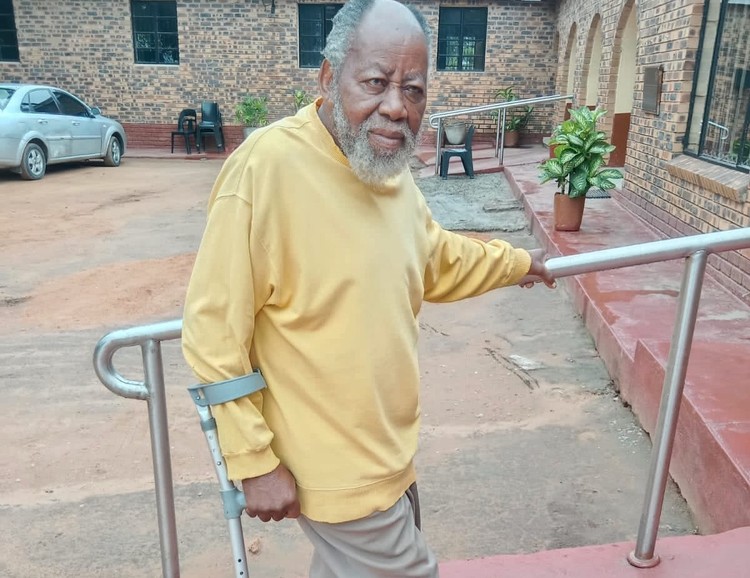
26 March 2024
Mpumalanga pensioner Abednico Mokoena hopes the decision to close the SASSA cash pay point in his village near Bushbuckridge will be reversed. Pensioners now have to pay R50 to travel to collect their grants. Photos: Masoka Dube
Tsanana Mdluli used to collect her pension from the SA Social Security Agency (SASSA) paypoint in Oakley, in Bushbuckridge, Mpumalanga. But early this month the pay point was shut down. Now the 76-year-old has to travel to Hazyview to collect her money from a bank or a retailer.
The return trip in a taxi costs her R50.
“I’m sick and I can’t walk from my house to the taxi station because it is very far. I don’t even know how to use the ATM,” says Mdluli. She lives with two teenage grandsons and a granddaughter and uses her grant to help the family.
The pay point was just a few minutes walking distance and she felt safe when she collected her money because she was protected by security officers from the tribal authority.
Oakley is a small village under the Mathibela Tribal Council, 24 kilometres from Hazyview. According to the Census statistics, the village has a population of about 2,000 people. The area is one of the poorest in the country and most pensioners use their R1,980-a-month grant to assist their families.
Tsanana Mdluli says she’ll have to spend R50 to travel to and from Hazyview to collect her grant now that her local SASSA paypoint is shutting down.
Abednico Mokoena, 70, is from the same village. The taxi fare to Hazyview will take a big cut from his income, says Mokoena, who uses crutches to walk. He lives with six grandchildren.
“We are appealing to the government to reverse this decision,” he said.
Post Bank announced in December 2023 that from April 2024 social grant beneficiaries would no longer be able to withdraw their social grants at Post Offices or cash pay points.
The Black Sash warned at the time that this decision would be “devastating” for beneficiaries.
Mathibela Tribal Council leader Chief Mathupha Mokoena, who is president of the Congress of Traditional Leaders Association of South Africa (Contralesa) said the elders had approached him for help.
“The closing of the pay point will negatively affect our senior citizens. Contralesa will oppose the changes,” he said.
Black Sash national advocacy manager Hoodah Abrahams-Fayker said the closure of the pay point would subject beneficiaries to travelling costs and/or bank charges. They would have to use ATMs and PIN numbers instead of biometrics, “which is difficult for beneficiaries, especially the elderly.”
SASSA provincial spokesperson Senzeni Ngubeni has not yet responded to the questions sent to him more than a week ago.